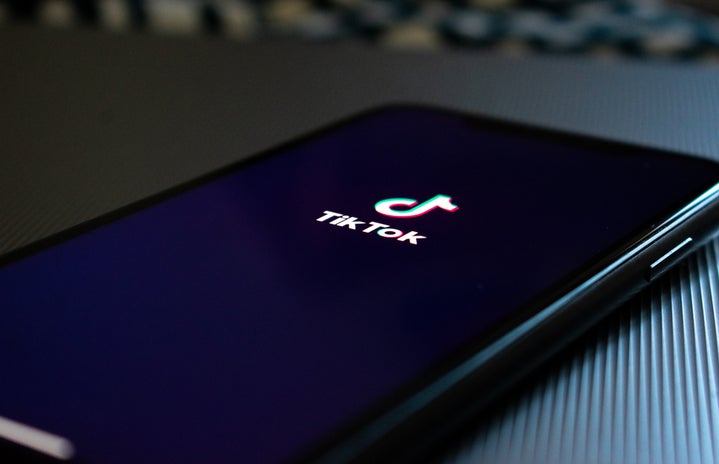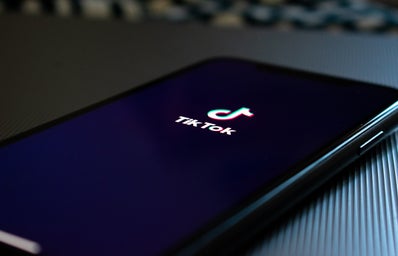Over the past few weeks, TikTok has been a hot-button topic, driven by the shocking news that the U.S. House of Representatives has passed a bill to ban it entirely. The bill- now on it’s way to the Senate floor- was shown overwhelming support by both Democrats and Republicans (Wow, they agree on something, and this is it?). While I enjoy TikTok as a viewer and creator, it’s difficult to overlook the glaring issues present within the app, especially regarding misinformation.
The problem
Over 2 in 5 Americans use TikTok as a search engine.
Adobe
In a wide-reaching survey conducted by Adobe, it was found that Gen Z is more dependent on TikTok than previous generations, with 64% claiming to have used it as a search engine. Users claim to have found it more useful than Google, as they preferred short-form videos, which would make the content “informative and digestible” for respondents. Unlike news outlets or other sources, TikTok has no way of publicly vetting its creators’ credibility or censoring misinformation on its platform, making it commonplace to see viral videos with potential misinformation.
It’s worth noting that TikTok’s “commitments” page does outline that they’re allies in the fight against intentional “disinformation” and accidental misinformation. Yet, freedom of speech has protected and allowed the circulation of many such instances of harmful information proliferating, which isn’t exactly exclusive to the platform.
claims
Among the many such cases of misinformation on the app, the most dangerous are those involving health advice from influencers, rather than reliable news sources.
In 2020, the pandemic made people desperate for answers, and after being confined to her home, one user sought to provide them. She posted a video boasting that “consuming garlic could prevent COVID-19,” which spread this unsubstantiated claim that eating the bulbous plant could make you immune to the virus. People also spread anti-vax propaganda through the app, bolstering natural immunity as their answer. One even proposed Ivermectin was the cure-all to COVID symptoms. In fact, in early 2020, ”20–32% of the sampled COVID-19 related videos on TikTok contained some misleading or incorrect information.”
One study found many other baseless claims on TikTok, including but not limited to:
- Aspartame causes cancer
- COVID-19 is harmless and not a cause for concern because you can be asymptomatic
- Alec Baldwin intentionally killed someone on the set of Rust
- You can test if you are right-brained or left-brained
These claims span from harmless to harmful and exhibit the kind of information to take caution of when using the platform.
One significant claim currently sweeping the app is that women should abandon artificial birth control and opt for more “natural” methods for pregnancy prevention. The main alternative being suggested is simply tracking your cycle, which some call “natural family planning” or “the calendar method,” and which doctors have warned is not all reliable. Young women are turning to the internet for advice and being bombarded with information from unqualified voices.
Conservatives have also been backing claims trashing birth control for a myriad of reasons. Christian conservatives have been known to subscribe to ideologies of “Quiverfull,” the idea that children are like arrows in your quiver (the more, the better), or that birth control is intrinsically evil, allowing “promiscuity and adultery.” Essentially, they are motivated to villainize birth control. Brett Cooper is a prominent conservative content creator working for Daily Wire who has stated that being on the pill can cause infertility, weight gain, and change who you are attracted to. These unsubstantiated claims have made their rounds in a now-viral video being seen by thousands of young people. Another host for the network, Candace Owens, touted birth control methods as “not normal,” furthering the stigma associated with female reproductive care.
This misinformation also ends up causing disproportionate harm to women who have been historically wronged by medical institutions, particularly women of color. It also furthers the shame associated with wanting to have an IUD, pill, implant, or whatever else a trusted gynecologist recommends you put in your body. With the overturning of Roe v. Wade, it is more important now than ever to remain informed and maintain one’s bodily autonomy and the freedom to use birth control. TikTok should never act as a supplement for medical advice, and all sources of information regarding your health should be vetted and heavily scrutinized.
TikTok commerce
Recently, a feature called “TikTok Shop” was added to the app’s interface. It allows users to link shoppable products directly from their videos, presumably due to the success of Amazon Storefronts in the influencer world. Like its Amazon counterpart, the creators are given a small commission from each person they influence to buy a product, which has flooded TikTok with advertisements. Viewers are quick to see a creator they follow carrying a new purse or gushing about a new perfume on TikTok and trust them blindly, purchasing whatever they are promoting. Commission incentivizes the creators to make a video raving about how the product they’re advertising is THE BEST product ever, regardless of their true feelings; these biases must be kept in mind.
TikTok Shop has been accused of dishonest marketing, including potentially selling counterfeit products and labeling them as brand names or luxury items. Korean skin-care brand CosrX, a brand known for selling snail mucin (snail slime meant to be used as a moisturizer), has said that “TikTok shop is not an authorized seller of Cosrx and no individual on the app is approved to sell the brand via the platform.” This implies that the brand is not behind the storefront and that there is no way to guarantee that the user is getting the real thing, as it can be challenging to determine authenticity.
To avoid receiving counterfeit products, buy from verified shops on TikTok that the app has vetted. This ensures that the buyer receives the product from the actual brand’s warehouse, not a secondary source or drop-shipper.
how to avoid misinformation
Certain biases make me more or less likely to trust the word of a stranger online. When content creators dress professionally and have millions of followers or a professional setup for their videos, viewers will likely overestimate their credibility. In reality, anyone can upload videos to TikTok, so our biases must be considered when making judgments.
Broadening your media consumption menu is difficult due to the algorithm’s consistency. You may expand by diversifying your sources of information and following people outside of your typical social circles to avoid the internet echo chamber. Overall, it is vital to be present in the real world and engage in media literacy.



